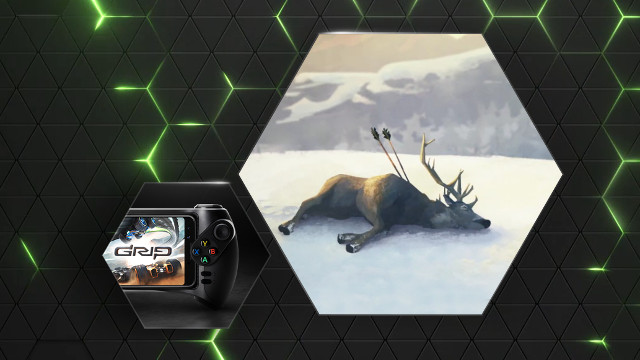Today, The Long Dark developer Hinterland Studio made the announcement that its game would be returning to GeForce Now. This marks an end to this particular segment of the GeForce Now controversy, a problem that should not have emerged in the first place.
To best explain things, it’s important to understand what GeForce Now is and the response by some developers and publishers. In short, GeForce Now is a game streaming service similar to Rainway or Project xCloud. Customers purchase access to the service and can stream video games on high-powered hardware to a PC, Android phone, or a number of other devices.
ALSO: Metro Exodus update removes Denuvo DRM amid growing backlash
A very important caveat for using GeForce Now is that you must already own the games (or otherwise have legal access to them); GeForce Now is not a storefront. You’re not paying for the games or even access to the games; rather, you’re paying to use high-powered hardware to play games you own on another device. That makes the GeForce Now controversy a particularly baffling problem.
The Long Dark and the GeForce Now controversy
Sorry to those who are disappointed you can no longer play #thelongdark on GeForce Now. Nvidia didn't ask for our permission to put the game on the platform so we asked them to remove it. Please take your complaints to them, not us. Devs should control where their games exist.
— Raphael van Lierop | Exploring Apocalypses (@RaphLife) March 1, 2020
Several game developers and publishers began to ask that their games be removed from GeForce now. Industry heavy-hitters like Bethesda backed out in recent months, but some indie game developers were also upset at their games being able to be played through GeForce Now.
Hinterland Studios’ The Long Dark was one of the more prominent indie games that ended up pulling out of the GeForce Now service, a move that earned them a measure of backlash. Now, the developers have happily announced the return of the game to GeForce Now.
The return of this game brings a close to one arc of the GeForce Now controversy, but that doesn’t solve an underlying issue: Hinterland Studios was, in my opinion, wrong to ask for its game to be removed in the first place.
Why Hinterland Studio was in the wrong
Hinterland Studio’s core argument was that the game was “incorporated into [GeForce Now] without [their] consent.” That’s an understandable issue at first, but it falls to pieces with some casual examination.
“Gamers have their own libraries already,” stated Forbes’ Eric Kain on Twitter following the game’s initial removal from the service. “The only thing this service does is allow people to access their own games on a different device they also own. That’s pretty clear and concise if you ask me.”
To put it another way: GeForce Now allows you to rent gaming hardware at a remote location; you then have that hardware stream a game you’ve already paid for to a different device you already own. Would Hinterland Studio (or any other game developer or publisher) be entitled to negotiating a licensing agreement or getting royalties for me buying a new PC — or renting one, for that matter?
Hinterland’s argument is based on specious reasoning. NVIDIA should not have acceded to their demands (or that of any other developer) to remove access to the game in the first place. A GeForce Now customer already paid for the game on Steam and is simply renting different hardware to play it on — a developer should not have any say in the matter, and to say otherwise promises a perilous and frightening future for game licensing.












